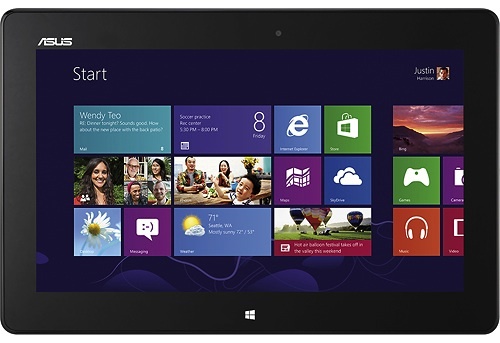 NEWS
NEWS
 NEWS
NEWS
 NEWS
NEWS
![]() Microsoft might insist that it’s happy enough with sales of Windows 8, but its new operating system has far from won over all of the critics, prompting drastic action as the Redmond-based firm offers significant price breaks to manufacturers in order to boost the development of small, touchscreen-enabled laptops.
Microsoft might insist that it’s happy enough with sales of Windows 8, but its new operating system has far from won over all of the critics, prompting drastic action as the Redmond-based firm offers significant price breaks to manufacturers in order to boost the development of small, touchscreen-enabled laptops.
According to reports in the Wall Street Journal and Digitimes, Microsoft has decided to slash the cost of its Windows 8 and Office 2013 bundles to manufacturers from $120 to just $30.
Microsoft hasn’t actually confirmed the news, but if true then the move should have a significant impact on its fortunes.
It’s no secret that Microsoft is some way behind its competitors when it comes to the mobile game. Sales of its Surface tablet have been disappointing by Microsoft’s own admission, as iOS and Android continue to dominate the tablet scene. Fact is, Microsoft took way too long to enter the fray, and so it’s going to take a huge effort to force its way back into the reckoning.
Windows 8 already has one key advantage over its rivals, as the operating system is scalable, meaning it can be used on both laptops and tablets plus newer devices like hybrids. If Microsoft really does lower its licensing fees, then these savings could be passed directly to end consumers, many of whom might be more inclined to give Windows 8 a shot if the devices are significantly cheaper than Apple’s iOS offerings.
That Microsoft is only offering the discount for smaller devices is a clear sign that it’s looking to transition away from the declining PC market into sales of hybrid laptops/tablets, which it believes represent the future of computing.
Whether or not touchscreen laptops really do take off remains to be seen, but the fact that Google has entered the game with its own, high-end Chromebook Pixel shows that Microsoft isn’t the only company that believes they will. But one of the problems up until now is that touchscreen devices are decidedly more expensive than regular laptops, and this has almost certainly dissuaded consumers and enterprises from buying them. Yet with the future of computing so closely tied to mobile, it’s become crucial for Microsoft to speed up adoption of Windows 8 at all costs.
If it can do so by cutting its prices, then the longer-term pay-off could be absolutely massive. Microsoft would not only reassert itself as a serious competitor (especially in enterprise), but it would find it much easier to steer consumers to its growing ecosystem of devices such as the Surface Pro and the Windows Phone.
THANK YOU